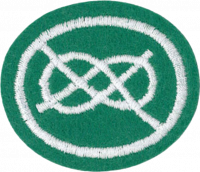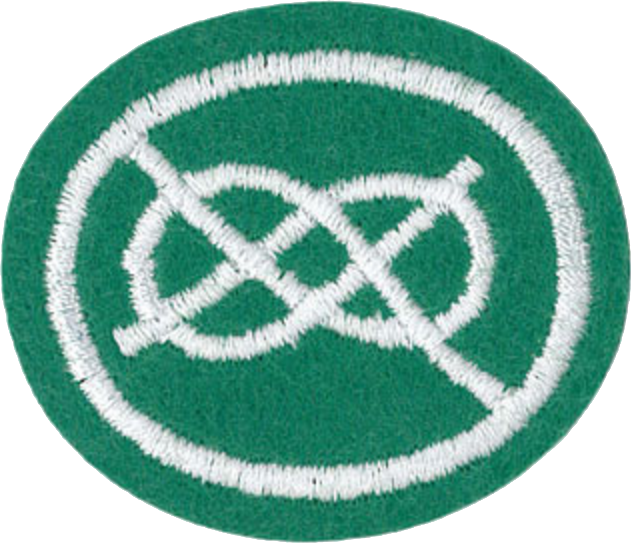Difference between revisions of "AY Honors/Knot Tying/Requirements/en"
From Pathfinder Wiki
< AY Honors | Knot TyingAY Honors/Knot Tying/Requirements/en
(Updating to match new version of source page) |
(Updating to match new version of source page) |
||
| (One intermediate revision by the same user not shown) | |||
| Line 111: | Line 111: | ||
<noinclude></noinclude><section end=req8j /></b> | <noinclude></noinclude><section end=req8j /></b> | ||
| − | :<b> | + | :<b>k. <section begin=req8k /><noinclude></noinclude>Double sheetbend |
<noinclude></noinclude><section end=req8k /></b> | <noinclude></noinclude><section end=req8k /></b> | ||
| Line 191: | Line 191: | ||
<section end=challenge /> | <section end=challenge /> | ||
<section end=Body /> | <section end=Body /> | ||
| − | |||
| − | |||
| − | |||
| − | |||
Latest revision as of 17:30, 21 July 2022
1. Define the following terms:
- a. Bight
- b. Running end
- c. Standing part
- d. Underhand loop
- e. Overhand loop
- f. Turn
- g. Bend
- h. Hitch
- i. Splice
- j. Whipping
2. Know how to care for rope.
3. Describe the difference between laid rope and braided rope and list three uses of each.
4. Identify the following types of rope:
- a. Manila
- b. Sisal
- c. Nylon
- d. Polypropylene
5. What are some advantages and disadvantages of synthetic rope?
6. Do the following to rope:
- a. Splice
- b. Eye splice
- c. Back splice
- d. Finish the end of a rope with a double crown, whipping, or a Matthew Walker's knot.
7. Make a six-foot piece of three-strand twisted rope from native materials or twine.
8. From memory tie at least 20 of the following knots and know their common uses and limitations. Demonstrate how they are used.
- a. Anchor bend
- b. Bowline
- c. Bowline on a bight
- d. Butterfly loop knot or Alpine butterfly knot
- e. Carrick bend
- f. Cat's paw
- g. Clove hitch
- h. Constrictor knot
- i. Crown knot
- j. Double bow
- k. Double sheetbend
- l. Figure eight
- m. Fisherman's bend
- n. Fisherman's loop
- o. Halter hitch
- p. Hunter's bend
- q. Lariat or Bowstring knot
- r. Lark's head
- s. Man harness knot
- t. Miller's knot
- u. Packer's knot
- v. Pipe hitch
- w. Prusik knot
- x. Sheepshank
- y. Sheet bend
- z. Slip knot
- aa. Slipped half hitch
- bb. Slipped sheet bend
- cc. Square knot
- dd. Stevedore's knot
- ee. Strangle knot
- ff. Surgeon's knot
- gg. Taut-line hitch
- hh. Timber hitch
- ii. Two half hitches
9. Make a knot board showing 25 or more knots.


